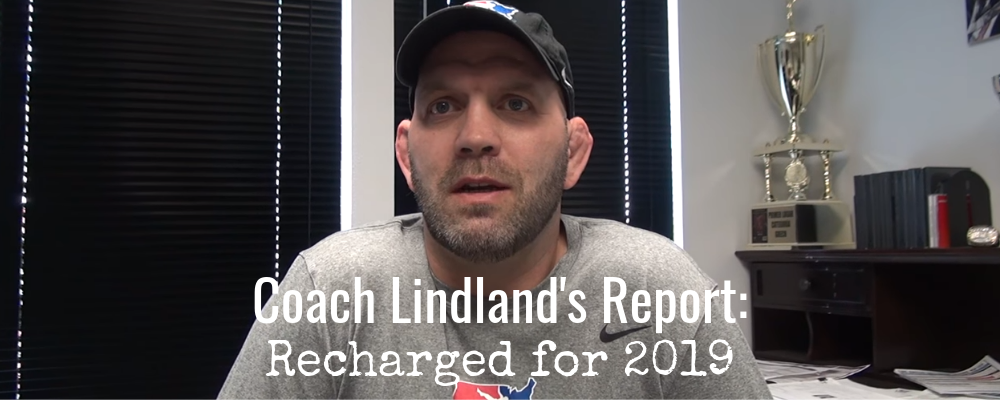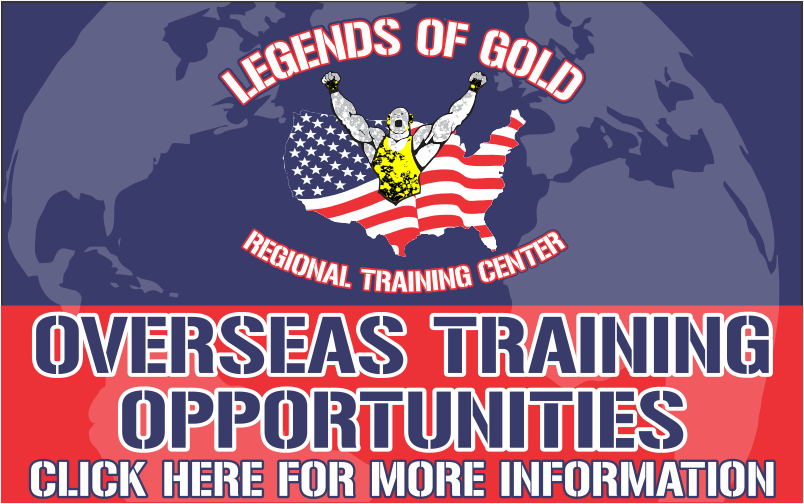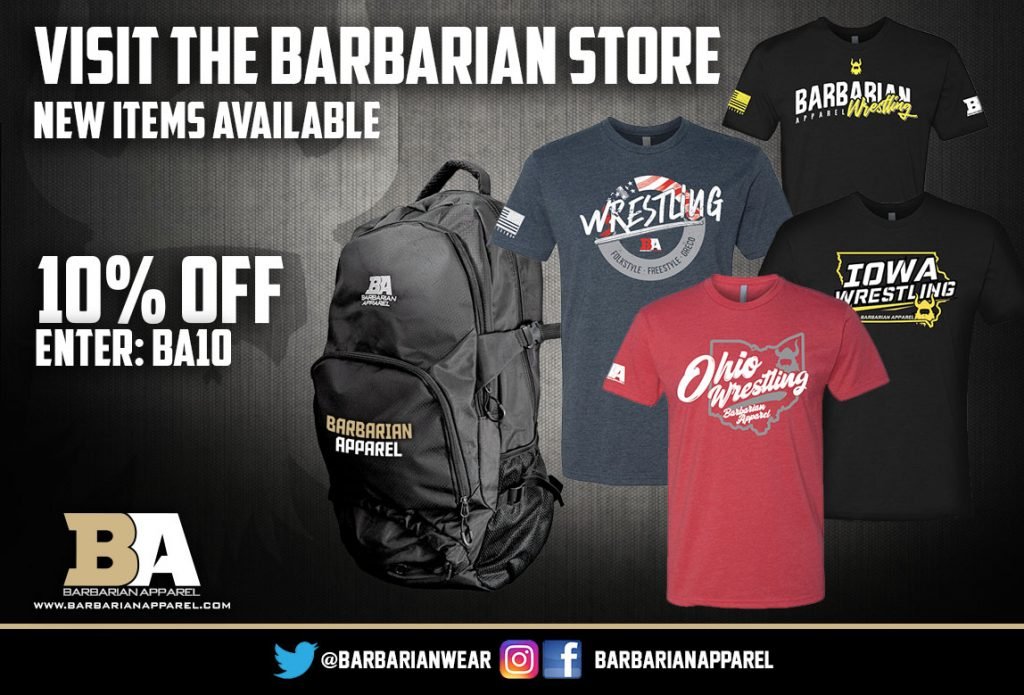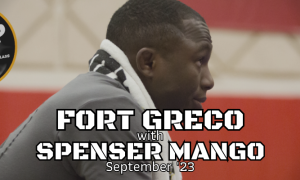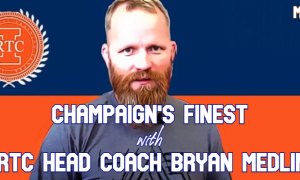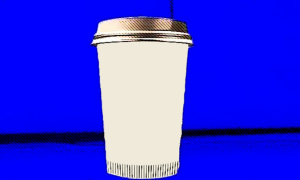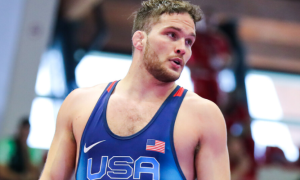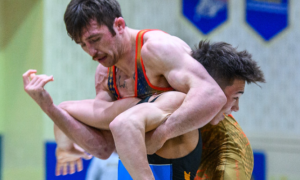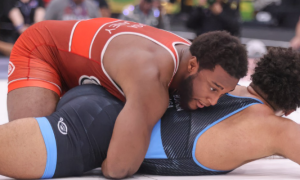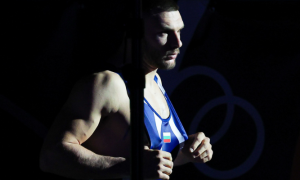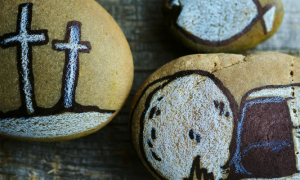Five Point Move is proud to host USA Greco-Roman National Team head coach Matt Lindland each week for Coach Lindland’s Report. Here is where you will find detailed perspectives from Coach Lindland regarding results, training, upcoming events, and other Greco-related news that isn’t available anywhere else. ALSO — if you would like to donate directly to the US Greco-Roman program, just click here. Your support is appreciated!
The first Coach Lindland’s Report of 2019 covers a multitude of topics, starting with late-November’s USA Greco-Roman Leaders’ Summit in Colorado Springs. Held over the course of three days (just as the US Seniors were competing in Sweden), this gathering was designed to foster a productive environment featuring input from various voices (mainly coaches) connected to the program. We get Lindland’s take on how that went, and then the conversation shifts to communication and whether or not there are generational challenges involved with today’s athletes. Key among the other items discussed are the upcoming Winter Camp at the Olympic Training Center (which begins next week), the encouragement of off-the mat relationships, as well as what the immediate plans are for the Seniors now that overseas events are beginning to appear on the calendar.
5PM: Do you feel a lot of good was accomplished at the Greco Summit that took place a month ago?
Coach Matt Lindland: I feel that we brought a lot of the leaders together, got us aligned, built some trust, and now it’s going to be a matter of how well we execute what came out of that meeting. We had some great feedback and some great ideas. I think what we actually wound up recognizing is that we are already thinking alike, we’re just not talking together or communicating well enough, and that was certainly one of the big things that came out of those meetings. One of the things we want to get better at as a program is communication. That was also one of the five areas our World Team athletes came up with together, improved communication. We had some good strategies this summer but we failed to have one-on-one meetings. We have technology, we have WhatsApp, so we’re always communicating — but it’s not that face-to-face where you can read body language or look guys in the eye. Trust really isn’t built through text messages or group chats as well as it can be by communicating face-to-face. So, we’re going to make sure we do some things differently this year.
At January Camp, we’re going to have meetings everyday. We need to get our athletes and the leaders of the entire program aligned. I just think it’s going to take a bigger commitment on everybody’s part. It certainly takes more time and effort on the part of the coaches and staff coming to camp to work with our athletes. It’s also going to take more effort from our athletes. Who wants to show up for an hour meeting every night? But when you know that’s what our team needs to get better, and that it is one of the areas we’ve all said we want to get better at, then we actually have to do those things. There can’t be just talk, there has to be action. I think a lot of times, there is plenty of talk and not a lot of action. I’m more of an action guy. I’ve been thinking a lot and there are messages I want to get across to our athletes to help them reach their goals, to help them get to where they want to be. Certainly, one of the areas we looked hard at was definitely that communication piece and how we are going to do a better job at that.
Another thing we looked at was how well we are splitting our resources. There is only so much funding to go around. Where will that funding go? It will go towards the athletes who see value in the training plans we put together as a National Team. But it’s not to cut anybody out, either. We’re coming closer to 2020 and we need to focus on our Olympic weight classes and on the guys who are all in and doing the right things. We’ve got a ton of guys in our program who are just doing things right. I mean, look at Adam Coon and Dalton Roberts. Look at Patrick Martinez, who is stepping up to be an incredible leader here in Colorado Springs. He still has some skills he needs to work on in the leadership realm, but he is constantly improving and looking at how he can do a better job.
I think the other thing from the summit that was positive was that everybody was heard. Everybody was open to listening to each other, there weren’t any attacks going on. I really have to thank Van Stokes and Gary Mayabb for all of the time and effort they put into this. As the National coach, there are only so many hours in the day and a lot of them are spent on big-picture stuff and thinking about these things. When it came to putting the summit together, and making the calls and booking the flights, there were just so many details they took care of. And with Van running it, I think the flow just worked really well. It was really a great event, I was happy that they did it. There are more plans. This January camp will have a lot of meetings with our athletes. I don’t know what we’re going to call it, but we’re going to get together and make sure we are communicating with our athletes.
Bottom line, get the Greco program moving in the right direction, get everyone on board. It’s back to my analogy, Get everybody in the boat, and going downstream. So yeah, I was super-thrilled with the way things went.
5PM: You mentioned communication. Do you think that this generation’s reliance on messaging apps and social media is detrimental to overall cohesiveness?
ML: That’s an interesting question. I think the default mode for our athletes, and like you said, this young generation, is Let’s do what’s easiest. That permeates through everything they do in life. Sometimes, the hard things need to be done. It is easier to be in a group chat and send a message out. But you don’t get the same human contact. You’re connecting egos and not connecting people, and we are a team of people. We are a program that has to have cohesiveness to function. If we’re always looking for the easy way out, whether that’s for communication or training, then you’re not getting out of your comfort zone, and that is when you grow and can make adjustments, make positive changes.
So yeah, I think it is, and I think I allowed that to happen in a certain sense. The guys were like, Here’s the solution. So then it was, Alright, I like the solution, let’s do that. And it didn’t work. We got to where we needed to be on time. The guys all got to weigh-ins, all got on the mats. But at the end of the day, we’re not building those bonds or those connections.
I was telling a story about things that just seem normal and natural. I sent out a group message — and not only did I send it out in a group message, I also announced it in practice and face-to-face — saying that I wanted to go watch one of our guys wrestle, Alex Mossing. Let’s go watch a dual. And it got me thinking back to when I was on the National Team and a resident athlete. We looked for opportunities to have hockey games at midnight or two in the morning, or to go fishing together. Just different activities, right? If we had the chance to go watch an hour dual meet at a college that is 20 minutes away, especially if one of our guys was wrestling, everybody would have made an effort to do that. We would have shuttled or carpooled together. I made it easy, I got us a van. I wound up cancelling the van because the few guys who did end up going drove themselves. There wasn’t a need for a big van.
Those are the types of things you do together that build those bonds and build that trust outside of the training environment. It allows you to work together and rely on one another in those training environments when the pressure is on. That’s when you figure out who you really are and how you are going to really respond when the pressure’s on. It’s not when you are in comfort, it’s when you are in the fight and have to rely on one another and count on another. Culturally, we haven’t been doing a good job of that and we have to make some big adjustments as far as that goes.
So that is an interesting question. I don’t think we can always look at the easiest way. We have to sometimes do what’s necessary, and sometimes what’s necessary is harder.
5PM: You said it before, the “Guys in the boat” theme. That was unveiled at the January Camp in 2017. With the implications surrounding this current season and how it relates to 2020, do you adjust the message or add on that theme? You had camps last year, but it wasn’t the massive January Camp.
ML: There is still going to be a good contingent of athletes here. Most of our National Team will be here. Some of our guys will be at other camps. Last year, we put together some smaller mini camps, we had upper-weight camps, which obviously proved pretty well for Adam Coon and Cohlton Schultz, who were at both of those camps. We had a lightweight camp. I traveled out to Utah and some other places, and then we brought some guys out to Northern Michigan to hold some smaller camps. We have a small group of guys — Martinez, (Kamal) Bey, RaVaughn Perkins — who are going out to Idaho to work with Ivan Ivanov. That makes it harder, when you don’t have everyone together. But — those guys are all residents here and I’ll make sure that I definitely share the message with them about what we’re covering in camp. I will have the opportunity to sit down with those guys face-to-face sometime in the next week and a half before they head out to Boise.
I don’t think the message changes regarding the analogy of the boat. We have to get in the boat, we have to get everyone paddling and working in-sync with each other. Coach Mayabb likes to talk about summiting mountains. I recently had the opportunity to read a book by Erik Weihenmayer called The Adversity Advantage. This cat was amazing. He turned blind at 15 and ended up summiting the highest peak on every continent. He did this blind, which was an incredible feat in itself. I do like the metaphor of the mountain. It’s a universal symbol for inspiration, aspiration. People share a drive to ascend, no matter what. We want to move forward, we want to move up, whatever that is. It’s human nature, to want to move up and forward into higher elevation. I like that as a metaphor. Gary took my metaphor and said, Look what you’re doing, every camp is a new summit. You’re gaining elevation. But with some of the guys, it felt like they were still stuck at base camp on the bottom of the mountain. However, we also had some summiters this summer and it was pretty awesome to see.
I’d like to see us work together as a team. I learned a lot by studying the book and reading about it. I think there are a lot of messages in there that I want to share. We’re going to have a short camp but we’re going to meet together everyday, like I talked about, to build that communication, cohesiveness, and trust so we continue to ascend as a program.
5PM: What is going to be the first overseas tour for Seniors?
Coach Matt Lindland: The Zagreb Open will be February 8th and 9th, and we’re hoping to get all of our #1’s and some of our #2’s over to that tournament. Unfortunately, it’s right around the same time as the Armed Forces (Championships), two weeks before, so that is going to inhibit some of our military athletes from joining the trip. It’s just timing. We don’t pick the UWW (United World Wrestling) schedule and it literally got released days before Christmas. I don’t know if you’ve seen a preview of my calendar, but I had both Zagreb and Hungary on there. I don’t know if I did a pretty good job of predicting that or maybe it was just luck and guessing, I don’t know (laughs). Either way, it worked out pretty good for us.
Granma Cup is pretty much right in the middle of those events and we’re going to have some athletes traveling over there with their clubs. Our two big events will be in February — Zagreb, and then we’ll hit that Hungarian camp and compete in the Grand Prix. And then in March, Thor Masters will be our next trip before the Pan Am Championships.
Speaking of which, in early-April we’re going to have another National Team camp back here in Colorado to prepare. Going back to my philosophy regarding the Pan Am Championships being so important with only two guys coming out of the event, we have to make sure we’re one of those two guys. Each one of our athletes is capable of getting himself to the top of that podium at the Pan American Championships.
Another lesson I learned last year is that I took the team that won the US Open and it (the Pan Ams) was a week later. The Pan Ams have consistently gotten better. The athletes have improved, the coaches have improved. Both the Pan Am Championships and Games are now much tougher competitions than they have been in the past. Not that our guys weren’t capable of doing it, I just think they were coming off of highs from winning the Open. As a program, we don’t put much emphasis on who wins the Open, but the athletes and the clubs, just about everybody else, does. It’s important to them and I understand that, and I should have recognized that. It’s a lot to win that and then come back a week later to perform at your highest capabilities for the Pan Am Championships. We were just unable to do that last year. We had one athlete qualify for the Games, that was Robby (Smith), who placed in the top-three.
For this year, we had planned on skipping the Open and just taking the #1’s. It actually worked out that they changed the schedule on us, again, and the Pan American Championships are now the week before the US Open in April. It works out well if the guys want to come back and enter the Open. They certainly have that opportunity. But the emphasis is to focus on the Pan American Championships and qualifying those five remaining weight classes for the Pan Am Games. Then the guys will be getting ready for the challenge tournament and the Final X Series. Things are just going to fly this year. It’s a very short year with the Worlds being moved back to September.
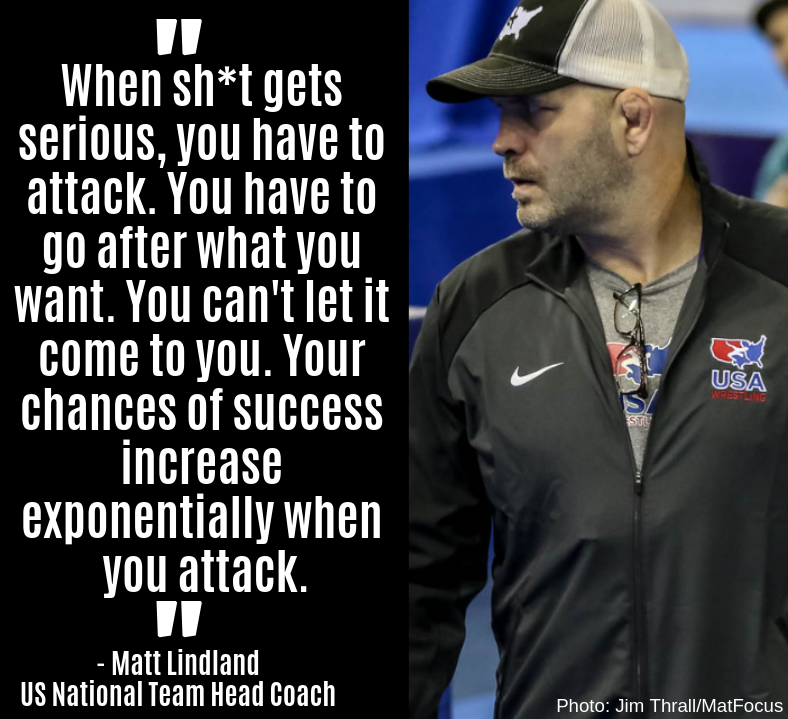
5PM: I guess whether you like or not is immaterial so let me ask it this way: how does the US program use the compressed schedule to its advantage?
ML: I think it’s one of our five areas that we want to improve, that sense of urgency. I think if the athletes look at this like, We have to get serious. 2020 is right around the corner, we’ve got a short window to turn around for the World Championships, which is our first chance to qualify for the Olympic Games. I think it really all comes down to that sense or urgency, to tell you the truth. Doing everything you can that is going to get you to the top of that podium, and to continue to hold yourself accountable and work on that sense of urgency. This is a great opportunity to embody that one area we want to work on and improve.
5PM: Coming off of the holidays you had a little time to recharge. Why is this important and how did you spend it?
ML: Well, first of all, it’s important for my team that I recharge. To take a break, to not think about wrestling for a week. To spend time with my kids, my wife, my family. Unfortunately, my wife’s father is passing away so we were driving back and forth to the coast everyday taking care of his affairs, getting his bills paid, and all of that stuff. It’s really important to recharge and re-energize so that I’m ready to go and I have that sense or urgency. And I do, I’m ready to go, I’m fired up. I’m excited, I’m having fun. I am excited for camp to start, for the team to get here, to work together, for us to become a unit and become more cohesive and build those trusting relationships.
I returned home from the Christmas break and went up to the mountains to spend my New Year holiday with my dearest friends — Chris Saba, Kevin Bracken, Brad Vering, and even Coach (Steve) Fraser stopped by to play some cards with us. We drank some bourbon that my sponsor J Riley hooked me up with. I am really happy with those guys. I actually didn’t think I liked bourbon, which is American whiskey and 51% corn. There are a whole bunch of things that make it not whiskey, but that’s for another time. I’m really stoked that I made a relationship with Doug Kidd from J Riley Distillery in Redlands, California. They sent me a bunch of bottles for the World Championships. We shared some with the coaches in our meeting, passed them out to others, just spreading goodwill with good American bourbon.
That was fun, but what was really, really fun was spending time with my friends, their wives, and just hanging out. These are guys who I’ve either coached during their careers or had been on Teams with. And to this day, we’re still looking for opportunities when we are on a break to spend time together and just enjoy each other’s company. It’s one of those things where I’d love to see our guys have that opportunity. I’d love to see the guys on our National Team have that opportunity. Because, these guys, they are going to be my lifelong friends, friends I trust with my life. Not because we just wrestled together, it’s because I know those guys will be there for me no matter what and because we supported one another in every endeavor. If one guy was going up the incline, we were all going up the incline. If one guy was going for a swim, we were all going for a swim. We were going to help each other, we were going to push each other, and we were going to be there for one another. And we still are. I’m hoping that when we hold these camps and have these opportunities to get together, guys on our National Team can start building those same kinds of relationships. I want that for everybody.
5PM: You’re big on the water, did you get a chance to do that during the break?
Coach Matt Lindland: Yes, and I have to thank one of my teammates from the Oregon Rafting Team, and my wife for encouraging me to get out there even though it scares her. She thinks I’m going to die, especially on this trip. I didn’t call her until it was about an hour and a half after dark. She thought I was floating down the river, without a boat possibly. It was a pretty epic trip.
Greg, who is one of my former teammates at ORT, he was one of the later guys on the team. I had been paddling with the team for a couple of years, won a couple of regional titles, and placed top-two at the Nationals already. But out of my entire team I was still the worst guy. And then the captain of the team said, You’re paddling with the new guy, who was Greg. They put me in a boat with Greg on a Class 5 run that I never ran by myself before, but now I’m doing it with a new guy who had only done Class 3’s with recreational boating and wants to get into racing. And he just kept falling on top of me. I remember this clearly. Every rapid we hit, he’d come out of his seat and almost knock me out of the boat. Eventually, it got to where I was just reacting and giving him a stiff arm when we’d come into a rapid (laughs). I’d throw a stiff arm out and put him back into his seat.
But it was awesome to get out there again, Greg has assembled a world class group of kayakers and rafters to go with me. It was amazing. The fact is, we both come from the same system. We trained together and competed together, Greg came on the team two years after me. For six years, Greg and I trained and competed together on a weekly basis, but I hadn’t paddled with him for five years. He was in town and said, Let’s get on the water. He put together a trip down the Green Truss section of the White Salmon, which is a very quintessential Northwest Class 5 steep creek run. And when we’re talking about steep creeks, we’re talking about 30-foot waterfalls to 10-foot ledges with big suckholes in the middle and everything in between.
It was funny, because as we’re getting in the water and putting the boats down, we get into the first Class 3 and Class 4 sections and Greg is talking to me. He’s like, Man, look at us, we’re just finessing this stuff. It wasn’t like when we were training. We’d just square up to a hole and charge. I like this style, let’s just keep working our way down the river. It was great until we got to our first Class 5, then we just squared up and charged.
Really, we attacked. We attacked the water. And as we attacked the water, we set a plan. The communication that was going on between us was non-verbal. It was a head shake or a quick glance to make sure we both knew we were going right or left. We saw a big rock near a big hole, we were bouncing all over the river. It was a beautiful run. As soon as we hit that first rapid, we just squared up and charged that thing. It was amazing. I am full flow state at this point.
The lesson is this: when shit gets serious, you have to attack. You have to go after what you want. You can’t let it come to you. If we were finessing our way into some of those rapids — and maybe, we could have done that; we’re probably skilled-enough boaters. But instincts took over. Our seven years of training took over, and we ORT-style’d these rapids. We went into them aggressive, attacking. That’s how we knew to fight the water. You don’t want to go in there and just see what happens. You want to have that visual plan of where to be. You’re visualizing where you want to be and where you want to get to. Then you point your boat, attack, and you get there.
It makes me think about wrestling. This is kind of the same way I approached the sport as an athlete. I’m going to go after this guy. I don’t give a shit what he’s doing, I’m going to attack and go after him. I’m going to make him react to me. I think that’s something I really want to impress upon our athletes, and that is, You’re going to win if you go after it. Your chances of success increase exponentially when you attack. I’m telling you, I know for a fact that if we didn’t attack like we did, Greg and I… I mean, we were talking about finessing the whole way! Oh, this is great, let’s keep this going. But as soon as it got to a situation where we had to focus, perform, and execute, we went into attack mode. That’s what got us down the river. That’s what triggers the flow state and gets you into that zone.
So, it was important for me to get on the water one day. I wish I could have done it both days. I am blessed and grateful that I had that chance. I’m always looking for those opportunities to create flow in my life, and I had one of those opportunities over the holidays, so I am very blessed.
Follow Coach Matt Lindland on Facebook and Twitter for updates on the US Greco-Roman Wrestling program.
SUBSCRIBE TO THE FIVE POINT MOVE PODCAST
iTunes | Stitcher | Spreaker | Google Play Music | RSS

Notice: Trying to get property 'term_id' of non-object in /home/fivepointwp/webapps/fivepointwp/wp-content/themes/flex-mag/functions.php on line 999

